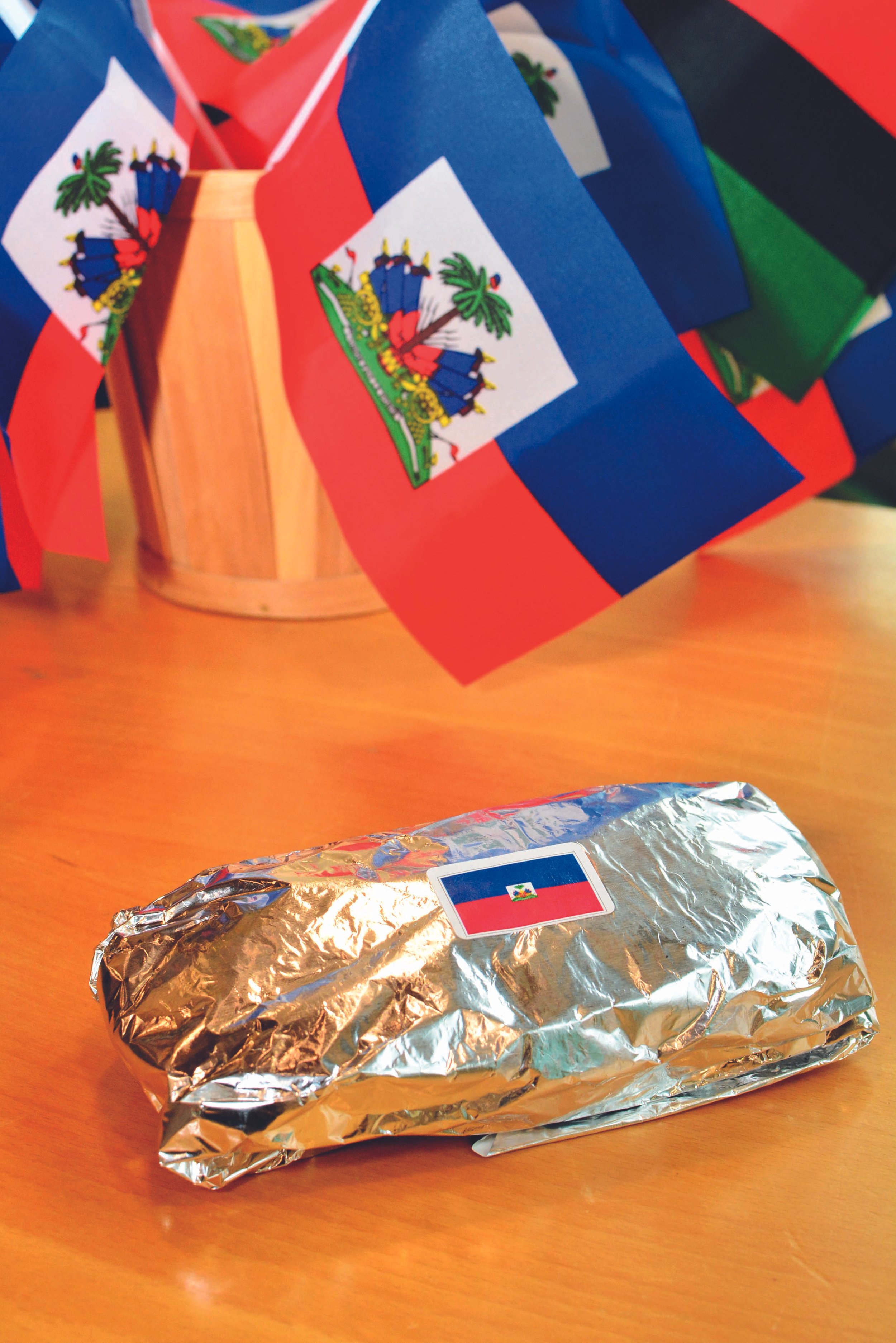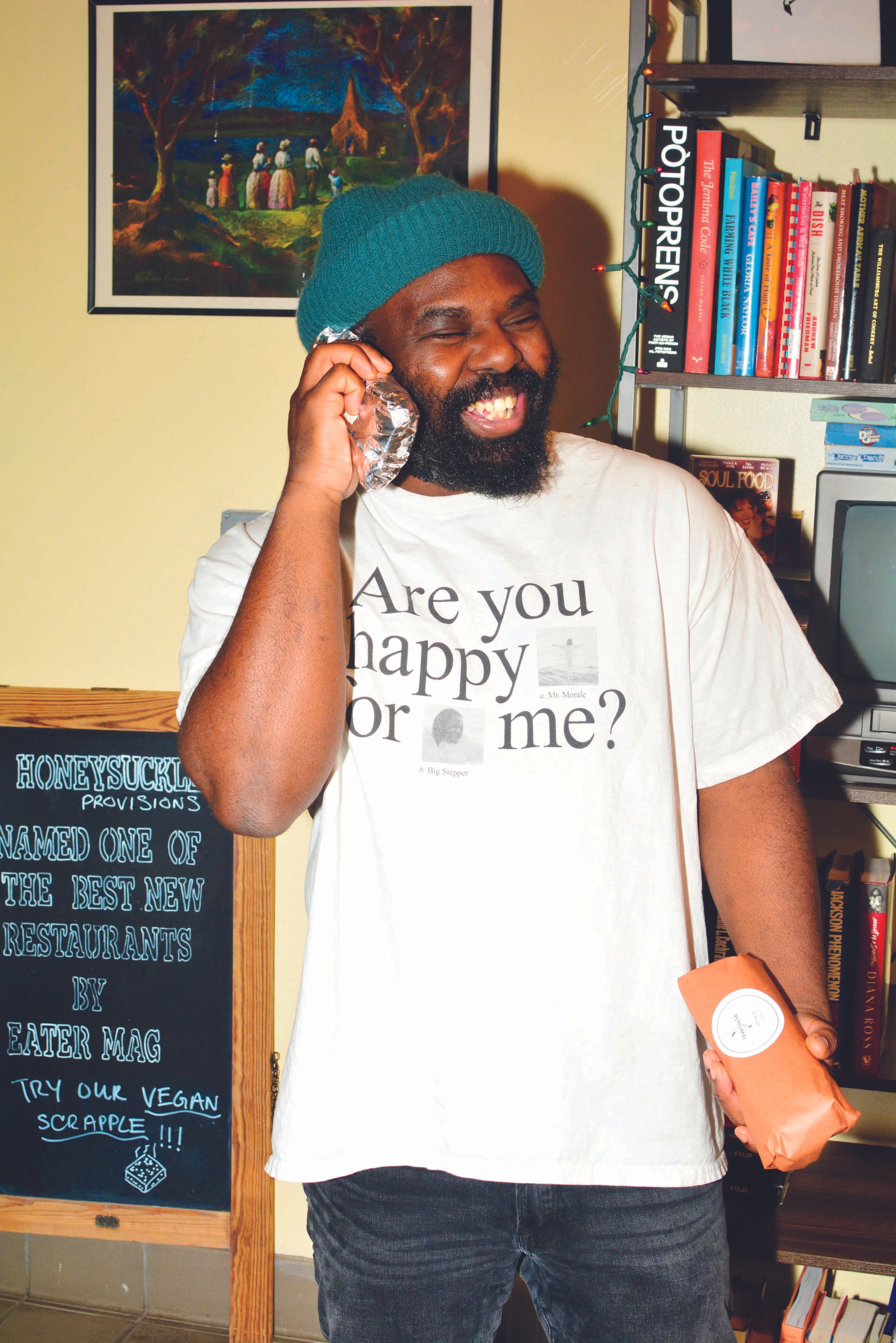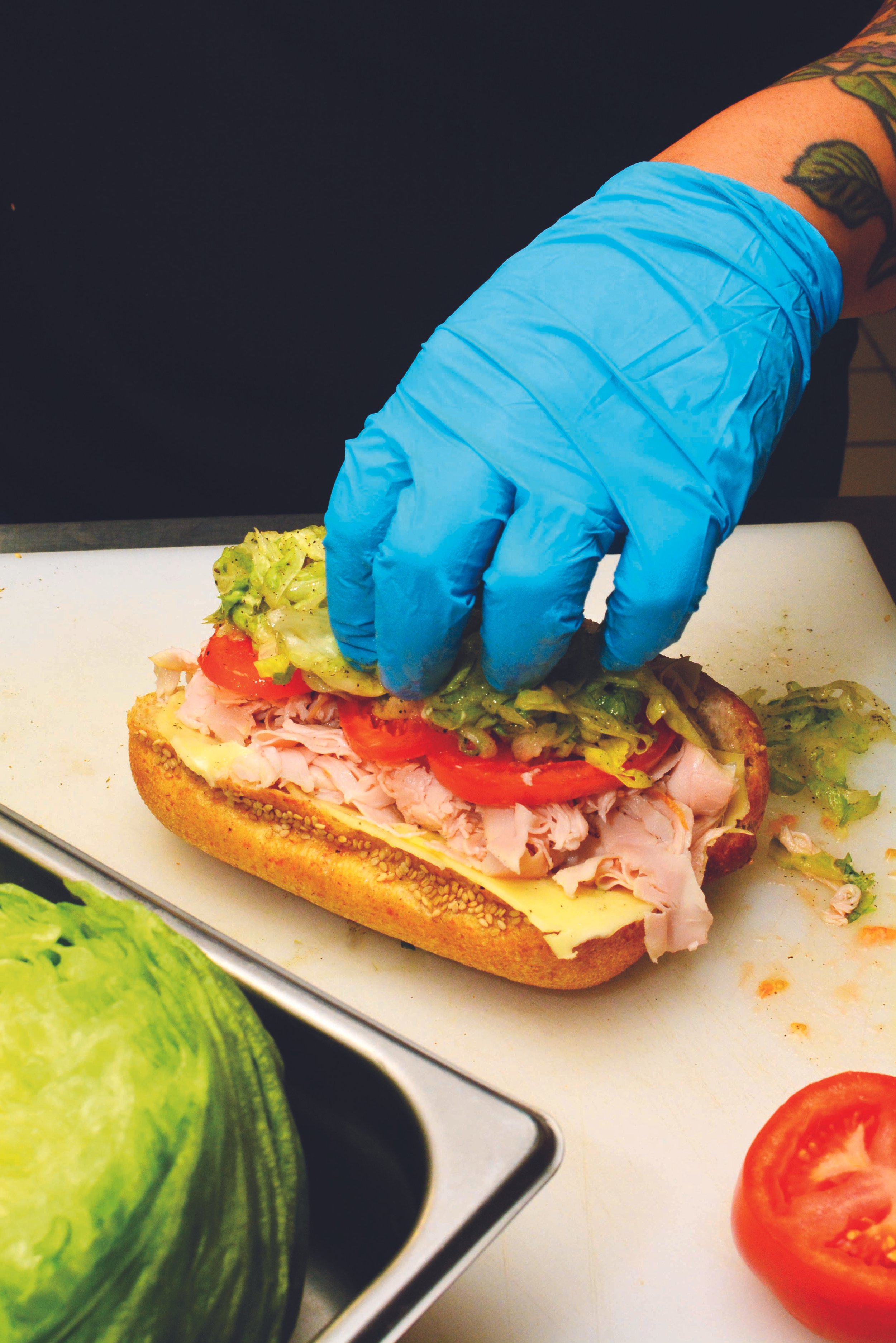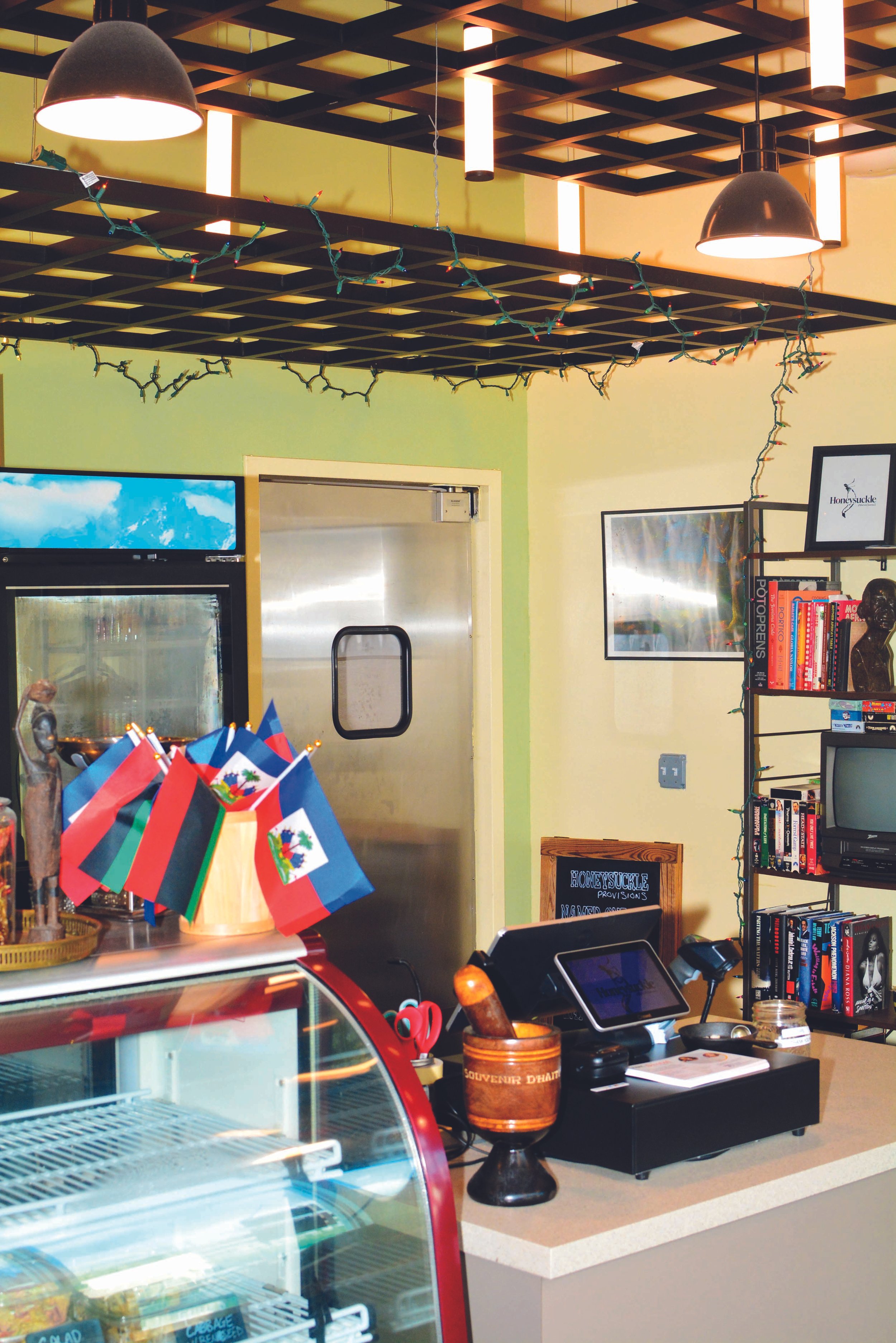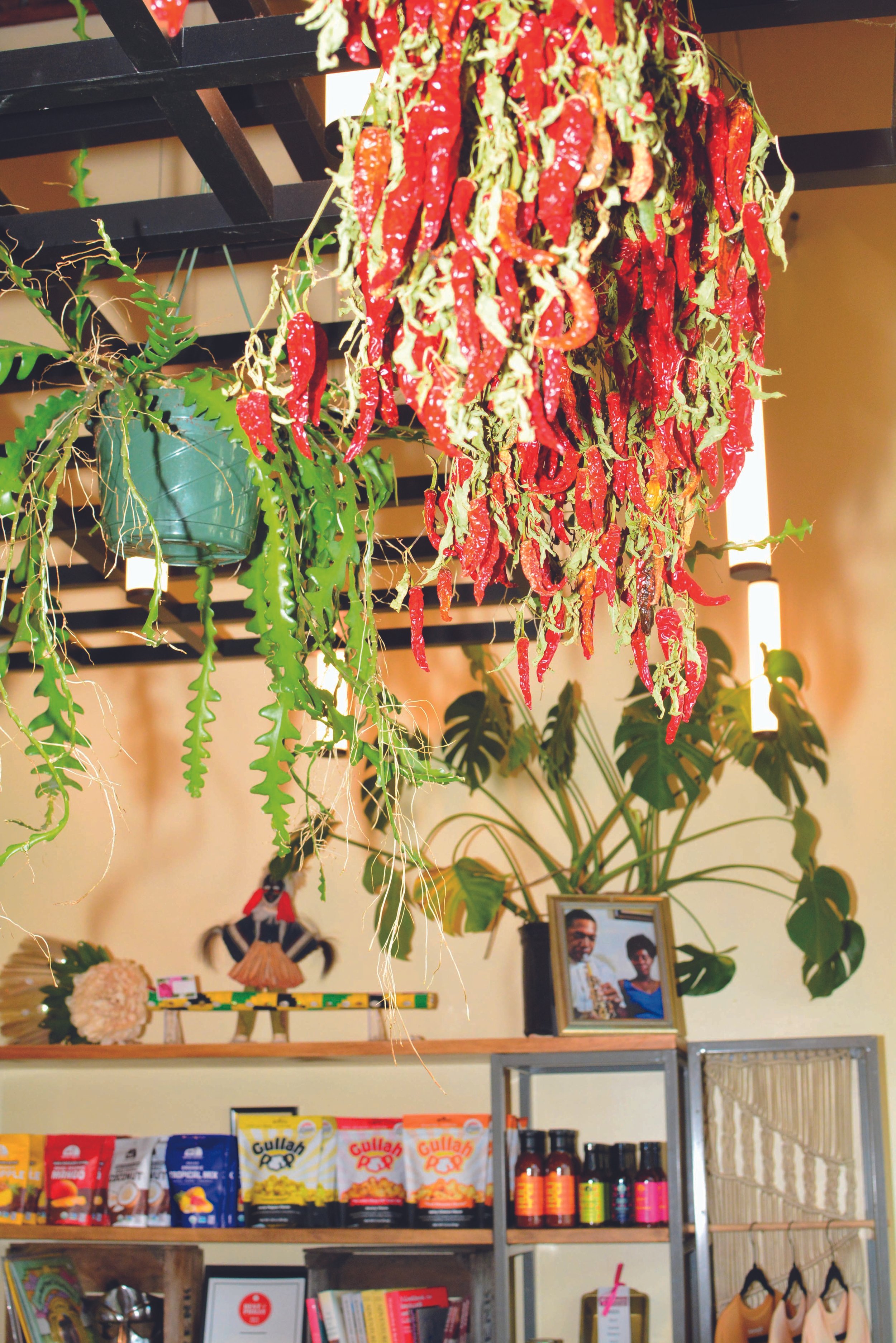The chefs bringing change to their West Philly neighbourhood
Words by Josh Jones
Photography by Marcus Branch
Honeysuckle Provisions, found on S 48th St in West Philadelphia, may have a reputation for their “legendary hoagies” but they’re much more than a simple sandwich shop. Founded by a pair of award-winning chefs – and married soulmates – Omar Tate and Cybille St.Aude-Tate, they see the role of chefs as one of great social responsibility. Their CVs may feature some of the most exciting restaurants on the East Coast but their real focus is on changing food networks, educating on Black food history and pioneers, and giving their community choices.
Your ethos is that chefs have a social responsibility, can you expand on that?
Omar: For me, chefs are situated at the nexus between several different things that affect our human existence. So that’s food, and food supply chain; food health; agriculture and then there’s also the hospitality aspect of ways that we find comfort in ourselves and in our spaces. All those things are very much a huge responsibility for any individual – we all perform different aspects of those duties in our daily lives. To become a chef you have to run an entity that is professionally responsible for making sure that you are not only executing at a high level for a large amount of people, but also what’s happening behind what's going on with the dining experience, which I like to call ‘The Show’. Behind all of that there are systems of care that need to take place. From where you’re getting your produce from and who’s producing your vegetables and proteins to who’s cooking it, how it’s cooked and what ingredients are we using? When you trace that, you can go down a rabbit hole, going back to the farm, the farmer, the person who’s picking it, the seed, the quality of the seed, all these different things. And chefs just live square in the middle of all that.
Cybille: Social responsibility as a chef, and even as a business owner, is to be mindful of the neighbourhood that we’re in, and our neighbours around us. We could have opened our first location anywhere. It could have been in New York – we both have strong ties to the city – it could have been in the more commuter-driven parts of Philly, but we ended up on this street, in West Philly where there’s really no other restaurant or establishment like us. It’s very centred on residential areas and families, and it was very important for us to be in a neighbourhood where folks deserved the quality and intention to care, regarding the food system, but weren’t receiving it. We made a very socially conscious decision to be in this one particular store to start off. To stake our flag and make a statement saying, “we're here because West Philly deserves this kind of attention to detail in this kind of artistry and craftsmanship”.
Omar: I’m from Philadelphia – a significant portion of my life was spent in West Philadelphia – and we both come from communities where historically there’s disinvestment. Where historically it is more challenging to just get the things that you need that improve your quality of life. When you think about organic food, or organic produce, or just beyond that – like apothecary shops – those kinds of things just don’t show up in the hood. You have to travel outside your neighbourhood to find them. But when we worked in other residential communities those things do exist – there’s a nice hair salon, a nice apothecary shop, a nice restaurant, and a nice drugstore, where people are friendly, and it’s not bare inside, you know? Oftentimes, the school systems there are also better and the food in those schools are better – it just all folds into one another.
You only opened in 2022 but have you already seen an impact in the community with the fresh, healthy produce you’re selling?
Cybille: I think so. It’s about giving people an option – we’re not the healthiest place on the block. I mean, we like butter, I’m not gonna sugarcoat it! But at a super-healthy place, some of the community might not really dive into what they sell, whereas we have a variety of options, and the agency of choice is something that we are strong believers in, that everyone deserves it. Community feedback is that folks are definitely excited and happy to be able to indulge in a wholewheat chocolate chip cookie if they want to, or a nice salad where they know the farmers that grew the ingredients, or choose a sandwich where they know we made the bread in-house. The biggest impact I see is when kids come into the store and they feel empowered to make these decisions. We don’t have high-fructose corn-syrup chips on the pantry, we do have chips but they’re not the option that they would typically go towards. It's an alternative and being able to see that in their neighbourhood, I think, makes a huge difference. You can see that in the curiosity of children when they walk into the store. And when kids give you a stamp of approval… nothing beats that – they’re better than any critic.
Did you choose to base this project around a sandwich store as it’s one of the most accessible meals to all cultures and walks of life?
Omar: I think that’s a byproduct of what we’ve done. More importantly, the food that we make comes from our own memory and our own nostalgia. We aim to make approachable products with a chef’s lens. We wanted to make our own bread, and obviously, when you make bread you’re gonna have a sandwich, but we were inspired a lot by [pioneering Black agricultural scientist] Dr. George Washington Carver and his research. We’ve learned a lot about agricultural practices through him and one of those things was that he produced a sweet-potato flour. We really latched on to that and now we make our own sweet-potato flour, which we use in our signature breads. Naturally those breads are used for our sandwiches, which we sell in the store. So we don't start with the sandwich, we start with our own curiosity, our own knowledge, wisdom, history and background and all those things then become the varying versions of products we sell, and that includes sandwiches and salads and soups and hot sauce.
Cybille: Yeah, we’re a totally accidental sandwich store. We didn’t start out that way but Philly is such a sandwich city that I think that naturally it just ended up being that, and it makes sense for us.
Omar: And everyone loves sandwiches!
What makes your hoagies legendary?
Cybille: Definitely the bread and definitely the turkey. We make our own deli turkey in-house, and we use very ‘cheffy’ things: we put shio koji on our turkey with our koji brine. We are very intentional, we glaze it with Ethiopian honey. It gets really cheffy, and I think that intention and that care in the process definitely goes a long way with folks. We make the benne seed mayo in-house, too. Benne seeds being like the West African cousin to sesame seeds, which we source from Anson Mills in South Carolina who hand-mill goods from organic heirloom grains.
Omar: All the products that we use have a story – we actually have a relationship with all the folks that we get our ingredients from. So we actually know the people who own the honey company, which is a single-origin company in Ethiopia. And the West African benne seeds come from Anson Mills, as Cybille says, where we know the founder. All these things really show up. Oh, and we started out slaughtering our own turkeys at the farm in South Jersey. Going back to land and land practices is what we always seek to do and having strong relationships with those people is really important. So I think beyond just it being “the best hoagie”, you can kind of taste that speciality and that specificity. Because a sandwich is just a sandwich to most people, but on the tongue, in a sensory way, there are things being revealed. Like “this is turkey but it tastes a little different.” Oh, that’s because of the shio koji brine, you know? This bread is a roll but it tastes a little different. That’s sourdough and West African benne seeds. People can’t quite put their finger on it so there’s this intangible quality to the experience of eating our food.
Working with local farms has always been important to you – how many local farms do you work with?
Omar: About five or six on a regular basis, and then throughout the season other folks, foragers, farmers, small producers. We work with a lot of people in the community who have garden plots, and they provide things like lemongrass. Because that’s all they grow, you know, that kind of thing.
Cybille: That’s a good point. Philly is known to have a lot of community gardens where there’s folks just growing in their backyards, or in vacant lots or where abandoned buildings used to stand. There have been movements towards making community gardens out of that, and there are a lot of those in West Philly, and we have a history of sourcing from them. It’s neat, because oftentimes they get to eat and taste what they grew in a different way, to what they make at home because they have an abundance of it. We’re able to intentionally put this on the menu, plan it out and present it in a way to them that’s not what they’re accustomed to. And I think there’s something very special about that.
Can you tell us more about the sustainability aspect of Honeysuckle – you do as much as you can to re-use and reduce waste don’t you? Are you trying to bring back a simplicity to food as it makes things easier for local communities?
Omar: It’s not just simplicity, it’s also exciting; it’s awesome. We have a lot of missions but I think something that just gets lost in the conversation about us being mission driven, is that we actually just love this shit. We love food and we love people. The eggs that we get for our store, we know the farmer and one day I noticed that the eggs were different – they just weren’t as sturdy. So I called him and asked him, “did y'all change the feed?” And he said, “actually, yeah, the feed got more expensive, so we had to buy a cheaper one.” I told him I could see it in the eggs. So we started giving his chickens our compost and now the eggs we get for our store are a direct result of the food that’s produced in the store. That only comes about by caring, thinking and understanding your ingredients, and then being excited enough to act on it. Now we can say that all our eggs are from compost-fed chickens. That’s not anything that we set out to do as a mission, it was just a result of being in an intimate relationship with our practice.
Regenerative agriculture is currently a huge trend across Europe but Dr George Washington Carver who you mentioned before was already talking about the benefits of it 100 years ago. How has he influenced you? Do the farmers you work with already follow his practices?
Cybille: Yeah, all of the farmers that we work with are on that regenerative trajectory. But it is definitely more emergent than it was maybe even two years ago, when we started kind of conceptualising what the store could be and who we wanted our partners to be. It’s one of those things where it was in us already. Without even knowing it our folks were operating in that way and they weren’t explicitly calling it these things. My family comes from Haiti and there are so many things that I’m adapting to use in store or our personal lives. I’ve realised that I grew up doing it this way, I grew up saving stems or preserving things and transforming aspects of waste or scraps into useful products. I just thought my parents were being annoying back then! But now you sit back and realise this makes a whole difference to us personally, to our community, and our employees. Because it’s continuing that cycle and reinforcing this food ecosystem that we’re trying to change and adjust. Folks think they can’t make a difference in the food system, especially on such a micro level, but you can. Even with little steps, like fermenting stuff, or turning tomato scraps into tomato vinegar, these are things that we didn’t think would make a difference, but they do. So I think empowering our neighbours, our community and letting them know the differences that they can kind of make, that’s been our mission.
Omar: Also, Dr Carver, he did a very intentional thing. He had an opportunity to teach at Yale or Harvard, or some very prestigious university. And he got that offer at the same time he got the call from Booker T. Washington to teach at Tuskegee University, for significantly less money. But the promise from Booker T. Washington was that he would be able to see the impact and the result of his work within his community. Because he’ll see how these farmers will be able to create prosperity within their own network of kinships, and relationships within their own neighbourhoods and communities. So Dr Carver opted for that, and it’s kind of going back to what Cybille was saying earlier about how we could have opened anywhere. There’s an inherent feeling of a torch passing from the ancestor who was Dr. Carver, and we don’t realise it but we’re making these decisions in concert with what he did and achieved.
This story first appeared in Sandwich 08 - the Chef’s Special issue. You can buy your copy here.
Keep up with all things Sandwich by signing up to our newsletter or following our social channels below.





